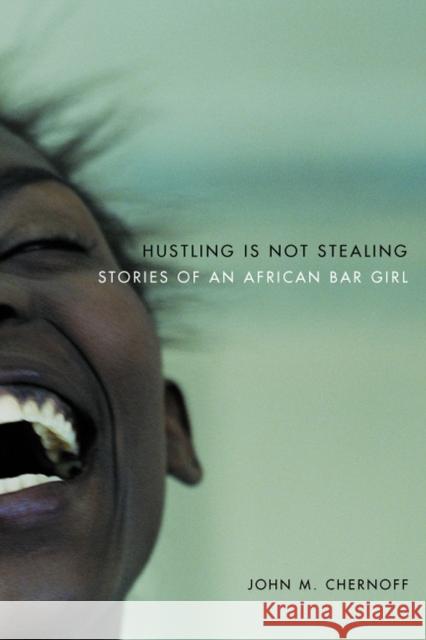Hustling Is Not Stealing: Stories of an African Bar Girl » książka
Hustling Is Not Stealing: Stories of an African Bar Girl
ISBN-13: 9780226103525 / Angielski / Miękka / 2003 / 480 str.
The prospects of a sixteen-year-old West African girl with no money, education, or experience might seem pretty depressing. But if she's got a hell of a lot of nerve and a knack for finding the funny side in even the worst situations, she just might triumph over her circumstances. Our heroine Hawa does, and she did. In the 1970s, John Chernoff recorded the story of her life as an "ashawo," or bar girl, making a living on gifts from men and her own quick wits, and here presents it in "Hustling Is Not Stealing," one of the most remarkable "autobiographies" you will ever encounter.
What might have been a sad tale of hardship and exploitation turns instead into a fascinating send-up of life in modern Africa, thanks to Hawa's smarts, savvy, and ear for telling just the right story to make her point. Through her wide-open and knowing eyes, we get an inside view of what life is really like for young people in West Africa. We spy on nightlife scenes of sex and deception; we see how modern-minded youth deal with life in the cities in villages; and we share the sweet and sometimes silly friendships formed in the streets and bars.
But mostly we come to know Hawa and how she has navigated a life that few can even imagine. The first of two funny, poignant volumes, "Hustling" starts with an in-depth introduction by Chernoff to Hawa's Africa. From there the book traces her remarkable transformation from a playful warrior struggling against her circumstances to an insightful trickster enjoying and taking advantage of them as best she can.
Part coming-of-age story, part ethnography, and all compulsively readable, "Hustling Is Not Stealing" is a rare book that educates as thoroughly as it entertains.
"You can see some people outside, and you will think they are enjoying, but they are suffering. Every time in some nightclub, you will see a girl dressed nicely, and she's dancing, she's happy. You will say, 'Ah This girl ' You don't know what problem she has got. Some people say that this life, it's unto us. It's unto us? Yeah, it's unto me, but sometimes it's not unto me. When I was growing up, I didn't feel like doing all these things. There is not any girl who will wake up as a young girl and say, 'As for me, when I grow up, I want to be ashawo, to go with everybody.' Not any girl will think of this." from the book
Winner - 2004 Victor Turner Prize in Ethnographic Writing"











